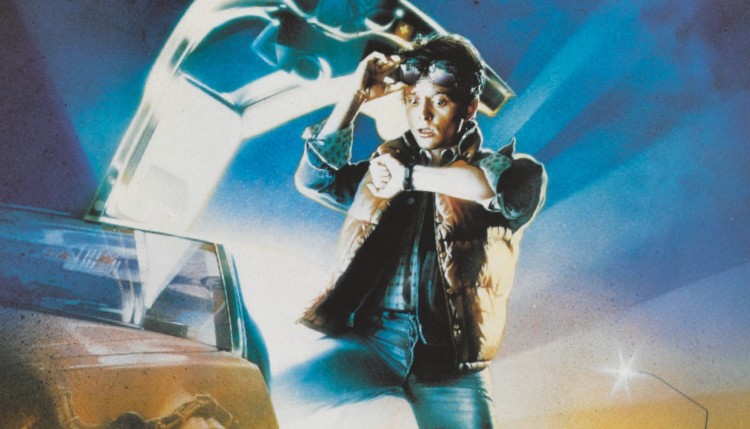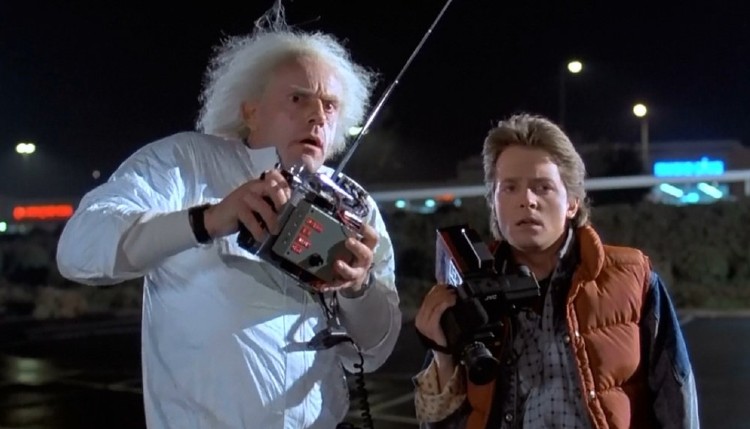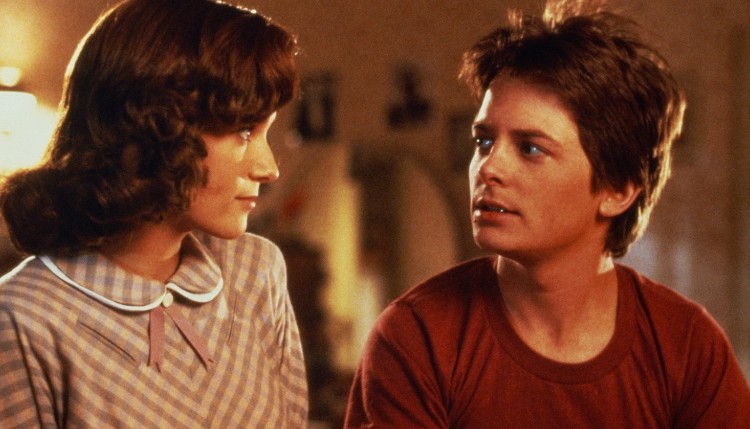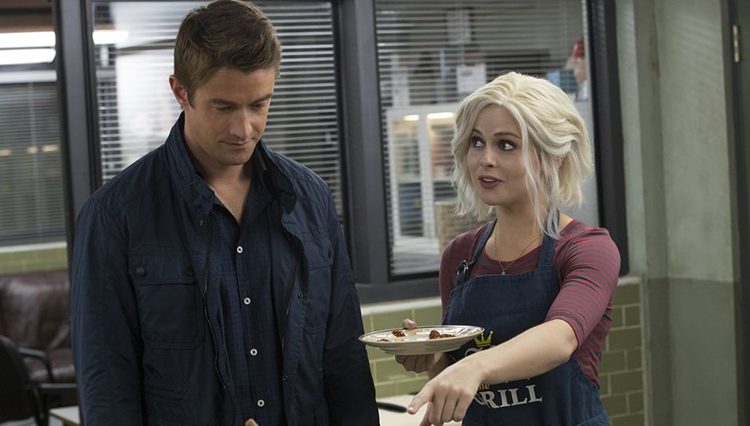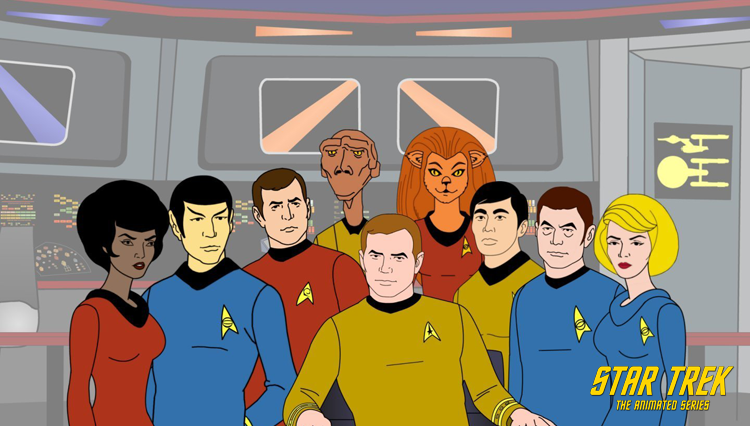Back to the Future, 1985 (Michael J. Fox) MCA/Universal
“Last night, Darth Vader came down from Planet Vulcan and told me that if I didn’t take Lorraine out, he’d melt my brain.”
In the land of the motion picture franchise, Back to the Future is an astonishing example of restraint. Three quality films (starting with this one) were released between 1985 and 1990. The two sequels were shot back-to-back in 1989, meaning that although the movie was enormously profitable (close to $400 million on a $20 million budget), and the studio was most definitely clamoring for follow-ups, director Robert Zemeckis, co-writer Bob Gale, and “golden child” Steven Spielberg took their time about it. They might’ve waited too long, but we’ll get into that when we get into that.
Back to the Future is an intriguing example of a kid’s movie with a dirty mind. It’s all built on the idea of Marty McFly’s (Michael J. Fox) parents having sex. That’s really all it comes down to because if they don’t, Marty McFly ceases to exist. I know what you’re thinking. Who cares if Marty McFly ceases to exist? I mean, after two more movies, it seems like Marty causes more problems than he solves because of his existence. The premise is insane but is dripping with “cool.” Marty’s friend, the scatterbrained Doc Brown (Christopher Lloyd), has constructed a time machine out of a DeLorean with plutonium stolen from Libyan terrorists.
He has Marty videotape his demonstration, but the Libyans show up after they realize he conned them out of their plutonium. The Libyans kill Brown and Marty takes off in the car, which hits 88 miles-per-hour, activating the time machine portion of the vehicle. Marty goes back in time to November of 1955, coincidentally the week his parents met. He catches his future father, George McFly (Crispin Glover) spying on his future mother, Lorraine (Lea Thompson) from a tree across the street. He falls from the tree and Marty pushes him out the way of an oncoming car.
Marty is struck by the car instead and is brought back to Lorraine’s house, and as such, she finds herself immediately attracted to him. Uh. Wow. There’s a whole load of implications associated with this development, but the script skips over those Freudian bumps. Marty, with the help of Doc Brown from the past, deduces that George was supposed to have been hit by the car and nursed back to health by Lorraine, but Marty screwed the whole thing up! Lorraine falls for her son in a big way. Uh. Okay.
This does set up an excellent conflict for Marty as he must figure out a way to get these two crazy kids together so that he isn’t catapulted into a black hole of non-existence. He also has to deal with local bully, Bif Tannen (Thomas F. Wilson) who keeps hounding George and making unwanted advances on Lorraine. In addition, because plutonium isn’t all that readily available in 1955, Doc Brown surmises he could get an equivalent force of power from a lightning strike.
This is an exceptionally clever movie that made a huge star out of Fox, but I do take issue with the ending. Marty doesn’t restore the past and his history. He actually improves it by changing certain motivations. His father, as initially revealed, is a well-meaning, docile man who works for Bif in the present. Because of Marty’s changes to the timeline, George becomes a confident best-selling science fiction author (this is definitely a fantasy). He and his family still live in the same house, but it’s a lot more spruced up. Marty has a Toyota pick-up truck, and Bif is the family’s bitch.
Crispin Glover seemed to have the same problem with the resolution of the story. In a podcast interview with IGN, he spoke about his concerns with regard to the relative materialistic ending, which gives the McFly family happiness through financial prosperity. The film also assumes that confidence obtained in the past (or in a person’s youth) will evidently continue and grow stronger in the future. I don’t know if that’s true either. Despite this “Fun with Dick & Jane” approach to quantum mechanics and self-help, Back to the Future is a fun, clever mix of science fiction and comedy.


